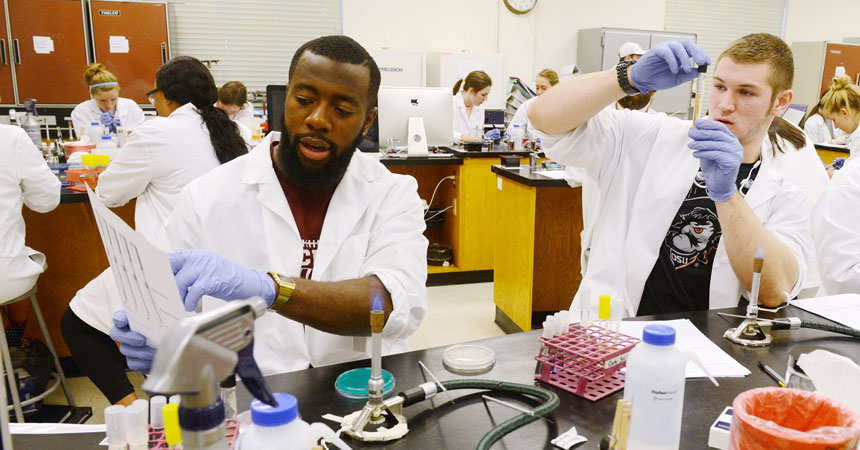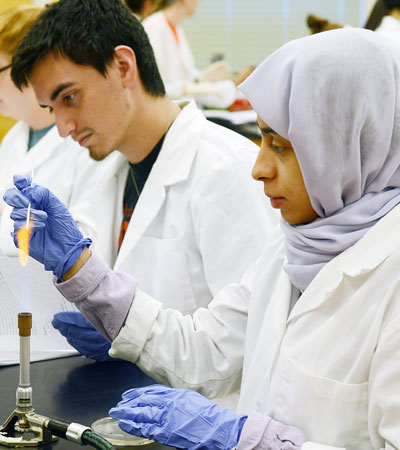OSU undergraduates discover novel bacterial genomes
Friday, October 21, 2016

Undergraduate life sciences researchers investigating microbial diversity and bacterial genetics as part of their courses are contributing to work being published in international scientific journals. Their research to identify novel strains of bacteria resulted in the students co-authoring eight publications about their discoveries in the journals Genome Announcements and Genomics Data.
This accomplishment is part of an effort to offer more undergraduate students in the life sciences authentic research opportunities through a combination of individually mentored and course-embedded research experiences made possible by a grant from the Howard Hughes Medical Institute (HHMI) to Oklahoma State University through its Science Education Program.

In this component of the program, students in an intro to microbiology laboratory course taught by Connie Budd, coordinator of undergraduate teaching labs, isolated strains of bacteria they had collected. Akhilesh Ramachandran, assistant professor at the Oklahoma Animal Disease Diagnostic Laboratory, screened the strains to identify organisms not previously studied. Following DNA sequencing, students in a novel genomics and bioinformatics class taught by Noha Youssef, assistant professor of microbiology and molecular genetics, analyzed the sequence data and had their results published.
In a first round, this effort resulted in three brief publications in the journal Genome Announcements in December 2015. Each of these three publications included the undergraduate students who had isolated the novel bacterial strains as co-authors.
In July 2016, Dr. Youssef and collaborators submitted the next installment of this project. This involved five full-length manuscripts reporting the analysis of novel bacterial genomes. Both the students who isolated the bacterial strains in the course taught by Budd and the teams of undergraduate and graduate students, who analyzed the genomes of these organisms in the course taught by Dr. Youssef are co-authors on these manuscripts. All five of the manuscripts have recently been accepted for publication by the journal Genomics Data.
Donald French, professor of zoology and program director for the HHMI-funded project, was excited about these developments. “This project demonstrates that multi-semester research projects by OSU students taking undergraduate courses is feasible and can generate publication-quality results,” said French. “This approach promises to transform many aspects of STEM education on campus.”
Wouter Hoff, professor of microbiology & molecular genetics, is the project leader for the microbial diversity investigation. “The dramatic advances in DNA sequencing technology combined with the abundance of unstudied bacteria in the environment provide this exciting opportunity to involve undergraduate students in authentic research,” Hoff said. “Currently, I am working with Dr. Youssef and Dr. Brian Couger, who is a bioinformatics researcher and a major contributor to the project, on incorporating recent developments in DNA sequencing and bioinformatics to further increase the number of OSU undergraduates contributing to this work.”
For information about undergraduate life sciences research, visit http://osu-hhmi.okstate.edu.
PHOTO: https://www.flickr.com/photos/ostatenews/albums/72157674121704541
